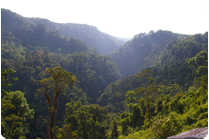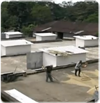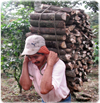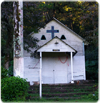
The western highlands of Quetzaltenango is known by coffee connoisseurs and buyers for yielding some of the finest coffee in the world. However, it is also known as a region rife with unemployment, extreme poverty, campesino (worker) struggles for unpaid wages and occupations of land. It is here where a group of landless campesinos occupied La Florida, an abandoned finca (farm), for 26 months in order to purchase the land and establish a cooperative community rooted in equality, justice and ecological sustainability.
With 47 acres and under 100 campesinos working the fields, they decided to cultivate half of the land that resides at the highest altitude with the most shade to ensure the finest coffee beans. Today, La Florida is a certified organic finca based on environmental sustainability. The community survives on democratic decision making, utilization of committees, and the distribution and rotation of workloads. Members work both cooperatively for the community, and each family has a half-acre to cultivate their own crops.
The Community of La Florida was collectively designed, rooted in democracy, social justice, equality, and environmental sustainability. All decisions were made by the group with the principal that each person has one vote and no one person or group has veto power. They established open committees to carry out the wishes of the community and to address such issues as health care, education, safety, farming, firewood, infant care, economic and legal needs. It was this process in the beginning which voted for a five-person team to start negotiations with the bank and the government to purchase La Florida.
To this day, La Florida sets an outstanding example for other campesino groups who continually face the same challenges.

The history of La Florida began 28 years into a brutal, civil war which lasted 36 years, claimed over 200,000 lives and displaced over 1 million Guatemalans. – learn more

When La Florida was first occupied, the families had huge amounts of land, firewood and access to fruit trees and an ample source of pure water. However, they had no infrastructure or supplies – learn more

The collective values of the community are based on the values and principles of SCIDECO, and are dedicated to the improvement of campesino lives. – learn more

The activities in the community are organized by projects. A Committee, consisting of members assigned every two years by the General Assembly, runs each project. – learn more